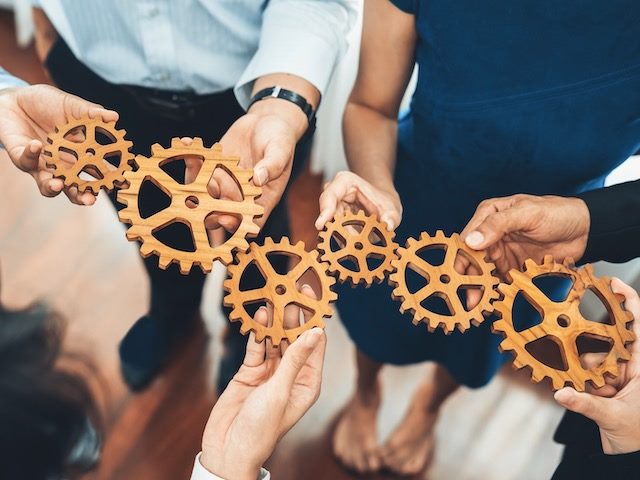In our rapidly evolving technological landscape, Artificial Intelligence (AI) has become an indispensable tool in managing and processing vast amounts of information and data. However, as AI takes center stage, it is essential to remember the critical role humans play in creating and leveraging knowledge effectively. Enter Radical Knowledge Management. Focused on reintroducing creativity and arts-based interventions (ABIs) into our organization, this ground-breaking approach recognizes the symbiotic relationship between humans and AI, allowing us to harness the true power of both.
Related Article: It's Time for Radical Knowledge Management
What Technology Can — and Can't Do
Large Language Models (LLM) and algorithms are changing our world and the way that we work, but not always for the better. They are important tools, but we must not forget our humanity. We must not forget the things that make us human: our emotions, our creativity, our inventiveness. AI will never do these things; at best, it will copy what we can tell it how to do, in as much as we understand it ourselves.
Technology is meant to make our lives easier, but does it? In some circumstances, certainly, but in others? No, not really. In some circumstances, we even become slaves to technology. We’re always on, just like technology is, because technology doesn’t need to sleep, eat, have a social life, raise a family or handle emotions and mental health — all the things that make us human. It also doesn’t think critically or question what it’s told; it just does things, for better or worse.
So, how do we, as humans, take control of technology, instead of technology controlling us? By learning to value the things that make us human: emotions, creativity, critical thinking and inventiveness. By creating boundaries and stopping the competition between humans and technology. Humans do what they do best, technology does what it does best.
Related Article: Art Belongs in the Workplace. Here’s How to Make It a Formal Practice
Arts-based Interventions
Introducing even small (ABIs) into our work and our lives can help us remember our humanity and be better humans. They help us become more sustainable, curious, and innovative, think more critically and process our emotions more effectively. As Susan Magsamen and Ivy Ross say in their book Your Brain on Art, “Throughout the day you can pause and add a little bit of art and aesthetics into your life […] the results are immediate.”
As a recent Harvard Business Review article outlined, there are 3 human super talents AI will not replace: curiosity, humility, and emotional intelligence. We need to focus on strengthening these types of soft skills.
The future of work is focused on values and principles; futures literacy (understanding how the future influences what you do and see in the here and now); systems thinking (seeing the bigger picture); independent thinking, emotional intelligence; and adaptability, according to Candice Chow, an assistant professor of Strategic Management at the DeGroote School of Business. All these things are enhanced and enabled through tapping into our inner artist, and remembering the things that were educated out of us.
Does this sound “too good to be true,” like a panacea? It’s not one. We’ve been conditioned to believe that there is a 1:1 or cause-and-effect relationship between things, but this just isn’t the case when it comes to the effect of the arts on our brains and our lives. The truth is that the arts have the ability to trigger hundreds of mechanisms that work in concert. This is why they impact all facets of our lives and exhibit such benefits, argue Magsamen and Ross.
We have been in such a hurry to focus on technology and become more efficient and effective that we have forgotten or ignored the things that make us human. Those are the things that we need to focus on and make space for in our lives. Those things are where the magic happens, whether the magic is innovation, well-being, mental health, healing the body, amplifying learning, flourishing, creating community or sustainable leadership, living or decision making.
This is why I advise everyone I speak with to tap into their inner artist, whether that art is cooking, gardening, painting, theater, music or some other creative/artistic outlet. The arts and creativity offer so many benefits to everything we do, and we really can’t afford to be without them any longer.
Learn how you can join our contributor community.
